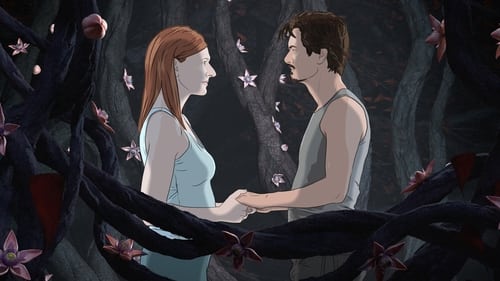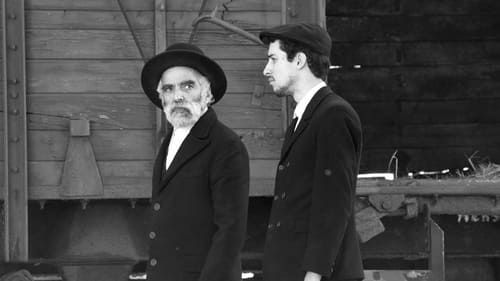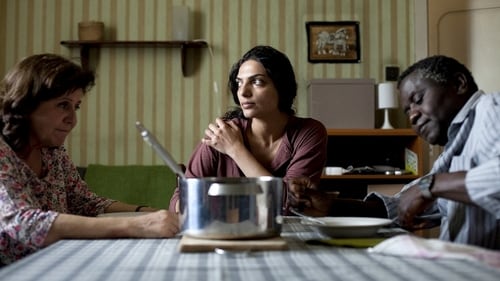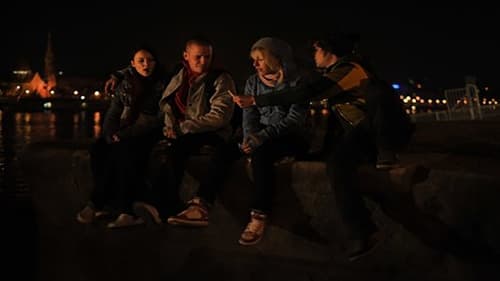István Znamenák
출생 : 1966-01-08, Budapest, Hungary

György
It’s summer in Budapest, high school student Abel is struggling to focus on his final exams, whilst coming to the realisation that he is hopelessly in love with his best friend Janka. The studious Janka has her own unrequited love with married history teacher Jakab—who had a previous confrontation with Abel’s conservative father. The tensions of a polarised society come unexpectedly to the surface when Abel’s history graduation exam turns into a national scandal.

Director
2123. Faced with diminishing resources, the human race can only survive through a trade-off: at the age of 50, every citizen is gradually turned into a tree. When Stefan discovers that his beloved wife Nora has voluntarily signed up for donating her own body before her time, he sets out on an adventurous journey to save her at all costs.

András
A young court bailiff's first eviction case turns into a nightmare because of a desperate old lady who is willing to sacrifice everything to keep her home.

Bizottsági elnök
In a world where childbirth is state-regulated, a couple applies for a license to have a child. They pass the first round of the process, but have no idea what awaits them in the second round.

Nino
The story focuses on people who suffer from different kinds of disabilities, but they also live whole lifes, they are people who just want to lead a normal life, to work and to prevail.

Cserkó Jenő
Vampires are among us! But no need to worry: the Hungarian Secret Police are after them, and beyond the usual spy gadgets, they even use garlic to repel the beasts.

Station Master
제2차 세계대전 직후 1945년 헝가리의 어느 마을. 전쟁 중에 끌려간 유대인들의 집과 가게를 소유하고 있던 주민들은 유대인 2명이 마을로 향하고 있다는 소식을 듣게 된다. 유대인들이 집과 가게를 돌려달라고 한다면? [67회 베를린 영화제 파노라마 관객상 등상 수상작]

The heart-wrenching story of The Citizen begins with a citizenship exam, where the examination committee rigorously questions a middle-aged African man. No matter how beautifully he recites Hungarian poetry, Wilson, a political refugee in his late fifties, fails the exams for the umpteenth time, because he doesn’t know where the periodical ‘Magyar Közlöny’ got its name from, and what the Corvinae are. Moreover, inspired by Vörösmarty’s poem, the committee chairman even questions his reasons for leaving his mother country. Wilson argues that his reasons include his fellow citizens cutting pregnant women in half, yet he doesn’t manage to soften the heart of the committee members.

Officer
Budapest, 1944. Three sisters are hiding in the apartment of a well-known doctor during the Holocaust. Their days are filled with paranoia, and it turns out that evil might come from unexpected places.

Csornai

Kálmán
Piroska is an overweight, alienated nurse who can’t resist cream-filled pastries. She works in the terminal ward of a hospital; her life is surrounded by death. One day she sets off to find her long-lost childhood friend. While tracing her recollections, she embarks on a paradox-filled voyage within her own memory and the memory of those she encounters.

Titi's father (Story #1)

Love makes a bad relationship between father and son all the more rancorous in this drama from Hungarian director Viktor Oszkar Nagy. A convict (Janos Derzsi) returns home after a long stretch in prison to a less than enthusiastic welcome; his son (Tamas Ravasz), now in his late teens, was left to fend for himself and tend the family farm on his own after his dad went away, and the youngster blames his father for his mother's untimely death. The father wants to mend his relationship with his son, but the young man makes no secret of his contempt for his dad, and only grudgingly allows him back on the farm.

The slow decay of a marriage sets the stage for this drama, which is leavened with understated humor. In 1988, Jozsi (Gergely Kocsis) is a Hungarian laborer who decides to marry Elizaveta (Eniko Borcsok), a woman of Hungarian descent living in the Ukraine. 1996 finds Joszi and Elizaveta the parents of a young girl, but otherwise their marriage is a shambles; Jozsi has become an alcoholic and Elizaveta has decided she needs to strike out on her own for the sake of her child. Shot on digital video as a project for Hungarian television, Paszport was directed by Peter Gothar, who previously made the international success Megall Az Ido.


Dini
A Budapest high school in the beginning of the 1960s. Dini suffers the torments of adolescence. His father had to leave Hungary after the uprise in 1956, and since then Dini's mother has had to take care of her two sons on her own. A friend of Dini’s father, Bodor, is released from prison and moves in with them. Dini and his brother are far from happy about this intrusion on their family life.

Camera Operator

Director












